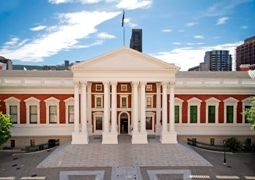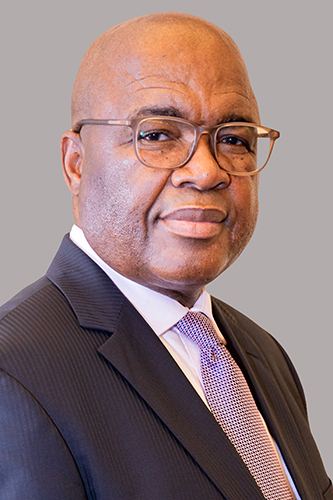
The National Council of Provinces (NCOP) held a debate to mark Youth Day on the theme: Youth Development through Access to Higher Education and Expanded Access to Skills Development. Speakers affirmed the centrality of South African youth in the developmental agenda and political future of the South African youth.
In his opening address, the Deputy Minister of Higher Education, Mr Buti Manamela, reminded his listeners that this year’s celebration marks 25 years since the adoption of a democratic Constitution and 45 years after the outbreak of the June16 Soweto Uprising. The government’s primary goal, he said, is to ensure that the youth acquires education and training to obtain the skills necessary to meet the goals of the National Development Plan.
“We have a resolve to skill the black youth by ensuring there is an increased uptake of black youth in higher education to expand and address skills shortages that are needed and their active participation in the labour market.” This is linked to the department’s increase of funding for black students from poor background. Well over R25 billion has been set aside to support students in universities for textbooks and living expenses.
To prepare the youth for the challenges of the 4th Industrial Revolution, the department has heightened its investment in technology to avert the digital divide brought by the advent of Covid-19 and to encourage the youth to acquire critical digital skills to curb skill shortages in this constantly expanding sector.
However, during the debate, many participants noted that the weak economy would struggle to carry the aspirations of the South African youth. Ms Karabo Khahau of the Free State Provincial Legislature said: “Many South African youth is born in poverty and find it difficult to have access to tertiary education. And if they do and are qualified, they can’t find decent jobs because this economy can’t carry their hopes.”
She advised the government to encourage youth to take artisan careers to gain necessary to “compete, to enter and stay in the labour market. And to contribute in building our country economy”.
One of the young delegates to the NCOP, Mr Itumeleng Ntsube, called for the broadening of black economic empowerment requirements to include the youth and women. This will integrate them in the mainstream economy and bring about inclusive growth.
Another NCOP delegate, Ms Brenda Mathevula, said today’s youth is still subjected to the same hardships as 45 years ago. “They are still getting shot and arrested by government when they call for equal and free education.” Like before, she said it’s still the black youth in underprivileged communities in rural areas that are compelled to study under the trees, in mud schools, with no text book and to be subjected to unqualified teachers. Under these conditions, the black youth will continue to have no full participation in the economy because they will remain unemployed, unemployable and uneducated.
NCOP delegate Mr Stephenus Du Toit said despite all the huge investment in education, billions of rands go to waste due to mismanagement in the sector. This has affected youth skill development programmes and led to the loss of job opportunities, however he urged young people not to give up hope.
A member of the Mpumalanga Provincial Legislature, Mr Beki Lubes, advocated for the youth to be employed in the agricultural sector. This will ensure food security and make them aware of the value chain of this sector, the careers paths and entrepreneurial opportunities it can afford them and will reduce the rate youth unemployment.
Mr Mbulelo Bara called on the private sector to invest in technical colleges to improve their standards and make them the institution of choice for the youth. He added that government should play a role in creating awareness of the relevance of technical colleges in our economy and in addressing skills shortages in the job market. “Government must promote technical colleges as an alternative sector for skill development, youth entrepreneurship, career paths and employment if we were to ensure that youth play an active role in our mainstream economy,” in their life time.
Abel Mputing
14 June 2021

